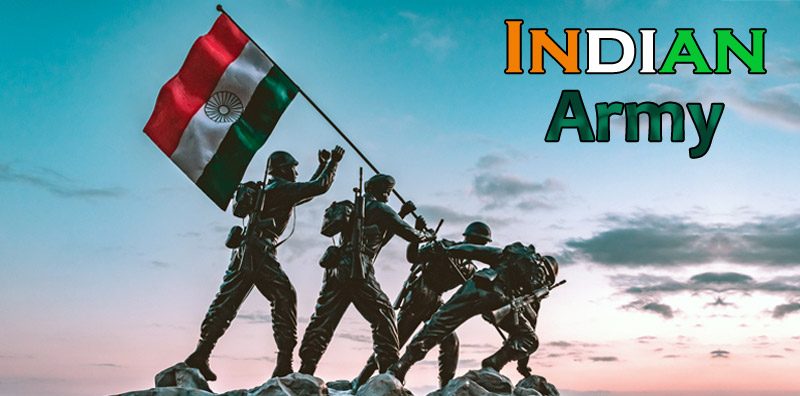- People keen on observing the sporadic border skirmishes along the international border, where our brave soldiers are positioned to guard the sovereignty of the nation, would concede that there is no hope of seeing peace returning to the region anytime soon. Both the borders, western as well as eastern, pose considerable challenges to the armed forces due to varying levels of conflicts being played out. The western border was always considered to be extremely volatile where our arch-enemy Pakistan tries every trick under the book to disturb peace and tranquility along with the long spread-out areas.

PC: Nextgov
- Of course, China’s aggression on the back of ambitious expansionist misadventures has also resulted in the troop buildup along the eastern borders as well. The fast-changing geopolitical scenario in the western region what with the dreaded Taliban returning to power in Afghanistan covertly and overtly aided by the Pakistani military establishment is only adding to the challenges. It is a given fact that our western neighbor will make efforts at infiltrating the borders with the Taliban terrorists. Notwithstanding the 13th round of talks between the Indo-Chinese interlocutors, the intransigence of the Chinese establishment to reduce or pull back massed-up troops from the eastern borders will test New Delhi’s resolve to withstand mounting pressures from various fronts.
- Against this backdrop, the Indian Army Chief was clear-eyed whilst mentioning recently about Beijing’s intention to stay firmly tented showing no inclination whatsoever to back out. In other words, the Indian army not only has to continue mirroring the Chinese troops but also remain forward deployed for the second consecutive winter in eastern Ladakh where temperatures dip to -30 Degrees Celsius. Make no mistake, such extremely harsh climatic conditions place a massive strain on the deployed troops and overall resources of the army. More worryingly, the recent string of targeted killings in Kashmir may have been carried out by hybrid terrorists or youth not yet on the radar of security forces, as reports suggest.

PC: DIWAKAR SHARMA
- It is dreadful to think Kashmiri youth could be inspired by the Taliban succeeding in Afghanistan to take up militancy afresh. Thus, the Pakistan-China nexus poses significant strategic-security challenges for us in the near future. Indeed, the Indian security establishment has long talked about preparing for a two-front war that appears to be upon us already. However, what we are faced with today is not an all-out conflict but ingenious Chinese-Pakistani tactics that look to impose incremental costs over a long period. Such tactics are specifically designed to drain India’s economic resources or stretching to its limits.
- What does it entail for New Delhi to position formidably against this nexus to not only thwart but also provide a befitting reply? As envisaged, reorganizing the military into joint theatre commands to streamline both resources and fighting power should be prioritized. Boosting the economy as well as avoiding social polarization should be pushed ahead vigorously to avoid inimical elements to take advantage of the situation. Needless to mention, we must steel ourselves for facing strategic battles ahead with gusto. Any laxity or failure to act in time would be exploited mercilessly by the waiting enemy.






